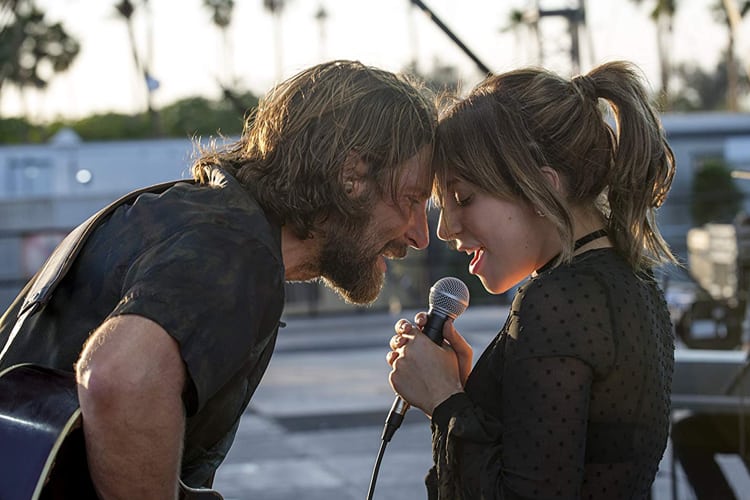2018’s “A Star Is Born” took a long road here. Before Bradley Cooper stepped behind the camera and Lady Gaga (Stefani Germanotta) strode in front of it, “A Star Is Born” was the Technicolor event of 1937—and then it was a Judy Garland vehicle in 1954, and then a rock and roll fiasco in 1976. Its story evolved over the years, moving from Hollywood to the music industry and examining the price of fame as it inflated. Each version captured its current cultural scene—how do the stars of 2018 bring it to the screen?
The casting of Lady Gaga and Bradley Cooper is a case of art imitating life imitating art. The original “A Star Is Born” was about the romance between an actress and an actor: one flourished despite being told she’d never make it, the other floundered in the grip of alcohol addiction. Those experiences aren’t foreign to the new duo. Gaga triumphed over the oppression of abusers to become a pop sensation; Cooper struggled with an alcohol addiction that nearly killed him. The connections that the two have to their characters don’t just show—they shine.
Cooper, adopting the gravelly voice of his friend Eddie Vedder, portrays rock star Jackson Maine. His body language is simultaneously lithe and course, like it was hardened over years of trials while falling into the rhythms of a live performer. One particular part of his body stands out: Cooper’s clear blue eyes have never been put to better use. He conveys a startling amount of emotional intimacy through those eyes, and bleeds that blue dry when the pain’s too much. His performance is full-bodied.
And his co-star is full-souled: Lady Gaga is magnificent in “A Star Is Born”, and sheds her postmodern pop star persona with surprising ease. She feels less like Lady Gaga and more like Stefani Germanotta as rising star Ally. Maybe it’s the lack of an outlandish costume, maybe it’s raw talent—Ally’s sincerity is alluring, and by the time she’s pressured to sing on stage with Jackson in the first act, you’ll have already forgotten that she was Lady Gaga. Her power rings out anew. Sharing in Ally’s discovery of her voice is explosively emotional, and realizing the depths of Germanotta’s acting ability is truly special.
After Ally and Jackson shake the world with their duet, “A Star Is Born” fails to recapture the magic of its first act. This is somewhat intentional: the movie wants to suck the glamour out of fame, so Ally’s story shifts into a lower gear once her career takes off. The second act rushes through her rise to celebrity, wallpapering over major events with montages and time jumps. Without an emphasis on Ally’s journey, the midsection of “A Star Is Born” focuses on Jackson’s addiction, a story far more conventionally written the fourth time around. Ally has the modern knowledge that addiction is a disease, which takes the third act to poignant places—but if the second act gave Ally’s story more room to breathe, her third act role would resonate more.
Bradley Cooper’s direction doesn’t falter with the screenplay. His directorial debut announces his style immediately, and it’s one of unique visual pacing. He has cinematographer Matthew Libatique shoot with the enthusiasm that only a first-timer could command, swinging the camera towards whatever interests him; and breaking up this vivaciousness with staccatos of still, well-composed shots. On his first try, Cooper meshes the best of concert films and art films.
He’s also a natural at breaking hearts. “A Star Is Born” is a tearjerker of the highest order, and it earns that title because Cooper and Gaga do their utmost to make us care. Their palpable chemistry, outpouring emotions, and understanding of character uplift the movie above all else—though their original song “Shallow” offers stiff competition. It’s difficult to imagine a pair that would’ve done the story more justice in 2018. They’re magical, and it’s exciting to imagine where they’ll go from here, on both sides of the camera.
★★★★ (4/5)




